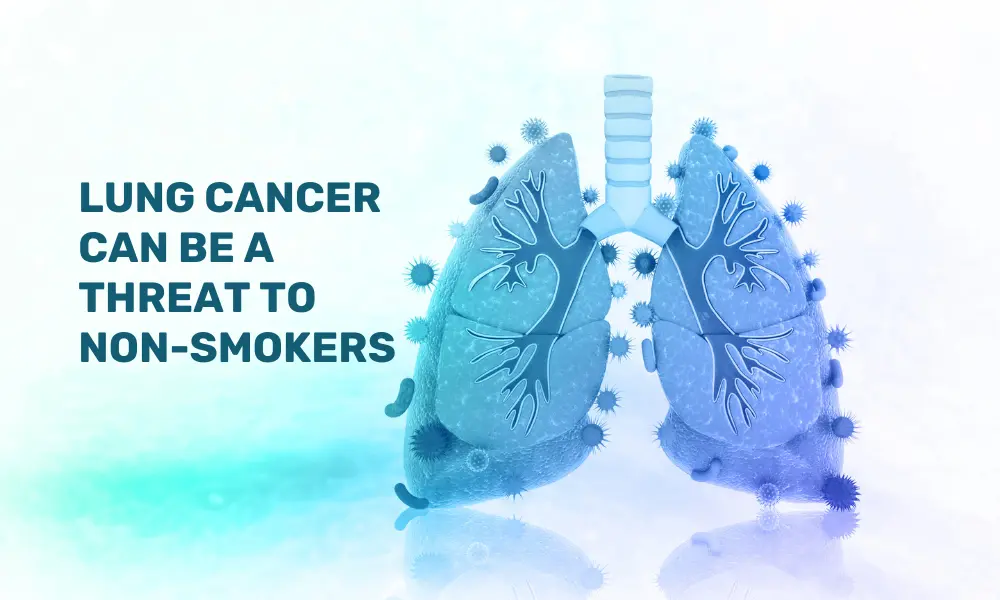Lung cancer is the leading cause of death across the world. Also, tobacco use accounts for 80 percent of lung cancer deaths across the globe. While doctors say tobacco plays a vital role in this deadly disease, even if you don’t have a history of smoking, you can develop lung cancer.
In fact, lung cancer rates are rising in nonsmokers, particularly women.
According to studies, while smoking rates are going down across the world, lung cancer is spiking. Around two-thirds of lung cancers in people who do not smoke occur in females.
Why is lung cancer rising among non-smokers?
Experts believe there is no single risk factor for lung cancer development – and that an individual is susceptible to a combination of factors, which include their hormones and genetics.
Second-hand smoke: Second-hand smoke exposure has a variety of toxins like arsenic, ammonia, benzene, and formaldehyde. So, even if one does not smoke, getting exposed to smoke may increase the risk of lung cancer.
Risks Of Passive Smoking: Changes in genetic components also lead to the development of lung cancer in women. As per doctors, these mutations are generally not inherited from parents but are acquired over a lifetime.
Estrogen: Estrogen, the sex hormone in women’s bodies, may trigger lung cancer development. Studies mention that non-small cell lung cancer expresses receptors – and that premenopausal women are at the highest risk of more aggressive lung cancers than both postmenopausal women and men.
Viruses: According to studies, certain kinds of viruses have a direct cause-and-effect relationship – leading to lung cancer, especially in women. A few of these include hepatitis B and C, human papillomavirus or HPV, and Epstein-Barr virus – all of which can be prevented by following a proper vaccination schedule.
Signs and symptoms of lung cancer
According to experts, most lung cancer symptoms look similar to other, less serious illnesses. Many people do not get any symptoms until the disease becomes advanced, so it is essential to know what they are and report them immediately to your doctor.
-
A cough that lasts a long time or gets worse
-
Swelling in the face, neck, arms, or upper chest
-
Recurring pneumonia
-
Coughing up blood
-
Chest pain
-
Wheezing
-
Breathlessness
-
Chronic fatigue
-
Unintentional weight loss
-
Hoarseness
-
Loss of appetite
-
Shoulder pain
Preventive Measures
-
Avoid second-hand smoke
-
Quitting smoking for those who smoke frequently
-
Wear a mask while venturing into zones with smoke or dust
-
Follow a proper vaccination schedule
-
Make your home and car smoke-free
-
Eat a balanced diet rich in fruits, vegetables, and wholesome foods
-
Regular exercise enhances lung function and boosts immunity
-
Maintain a healthy weight
Lung cancer is one of the fatal cancer types; hence, taking preventive measures is essential.
This article is meant for informational purposes only and must not be considered a substitute for professional advice.





